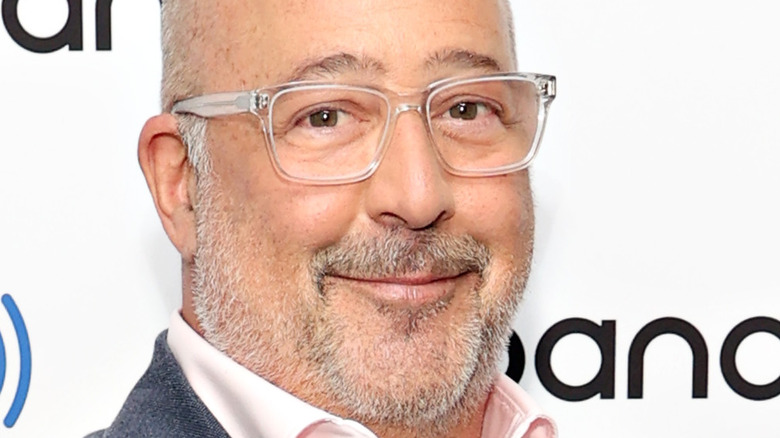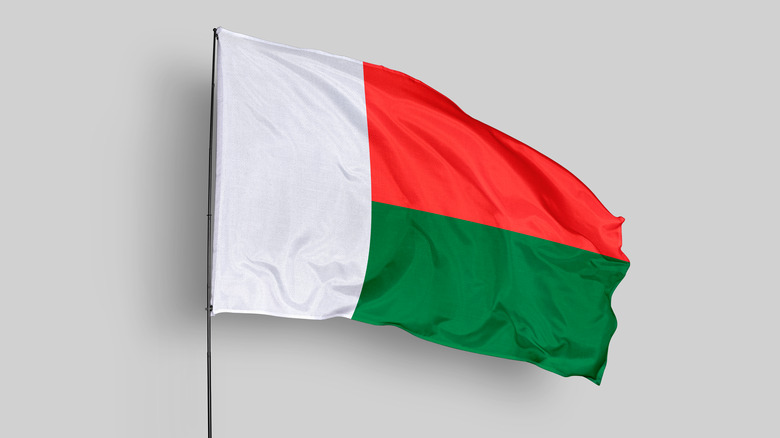What Andrew Zimmern Wishes You Understood About Climate Change
Andrew Zimmern, the host of Travel Channel's "Bizarre Foods" as well as an active poster on his YouTube cooking channel, is passionate about food. One would have to be, after all, in order to be able to stomach the most out-there of edibles, as Zimmern has, including coconut tree grubs and fermented shark meat. It's not just strange stuff that Zimmern's into: he also loves more classically appealing dishes, such as those he has shared online: cheesy chive biscuits, pasta carbonara, barbecue chicken, and more (via YouTube).
But apart from loving to cook and loving to eat, Zimmern is also passionate about the politics of food. He's committed to reducing food waste, and on his MSNBC miniseries "What's Eating America," the host examines such diverse issues as immigration, voting rights, and climate change, per MSNBC.
The latter is a topic especially important to Zimmern, as demonstrated by a recent tweet.
Zimmern is calling attention to a crisis in Madagascar
Recently, Andrew Zimmern called attention to a situation that is now dire in Madagascar. Yesterday, the chef tweeted, "I've been to Madagascar and the situation was horrific then, worse now. @wfp says it all here," linking to a World Food Program Instagram post that lays out some sobering facts.
"The climate crisis is no longer a glimpse into the future but a daily reality for many communities around the world," the WFP post notes, going on to describe how Madagascar is the only location on Earth where widespread severe hunger is caused solely by climate and not by conflict. Additionally, the post says, more than 1 million people in the southern part of the island are unable to feed themselves due to the agricultural fallout of the most severe drought in 40 years. The extreme nutritional crisis has led locals to consume food they can forage, including locusts, prickly pears, and wild leaves.
The World Food Program is collecting donations on its site to aid in the fight against the climate-fueled food crisis. As Zimmern has pointed out after a recent heatwave in the western U.S., the world's food supply, workers, and climate change are all linked (via Twitter).

